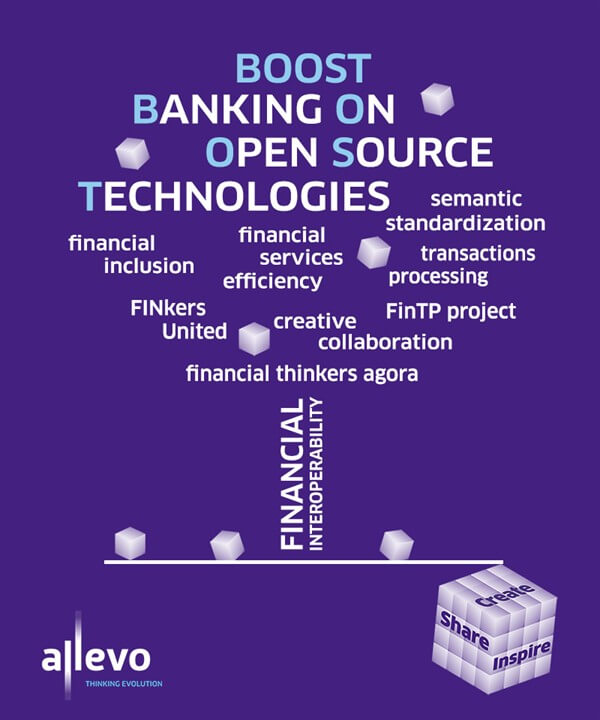What if open source software and principles were used more extensively in FinTech? Imagine a bank powered by an IT infrastructure made up of free open source software. How would this differentiate them from a financial institution that buys licenses from vendors who provide proprietary state of the art software that needs to be integrated, kept aligned to standards and regulations, and operated flawlessly with the rest of the applications that form the system?
And this is what we tried to find answers to during BOOST – Banking On Open Source Today, the community session we organized at Sibos. To help us with the debate, we invited Mircea Mihaescu, Director Technology Research Center, Sberbank, Mr. Matteo Rizzi, Partner, SBT Venture Capital, Mr. Radu Gratian Ghetea, President CEC Bank, Mrs. Rodica Tuchila, Director Romanian Banking Association and our new CEO, Corina Mihalache in the panel.
As outlined by studies conducted by Black Duck or other similar entities, people in the audience agreed there is a good chance such a platform would evolve much faster than systems that get left behind due to the existence of deprecated or obsolete software, derived from code often written by people who are no longer part of the company, code that nobody wants to touch, or due to the low update frequency of apps that are part of the solution. Open source software, like Linux and its famous Android sibling, Eclipse, Hadoop, MySQL or FinTP, is usually backed and maintained by those who create the project and, by its open nature, it gets to benefit from contributions of any party interested in enriching or rethinking bits and pieces of the code. This is a non-intrusive approach designed to encourage collaboration, creativity and idea generation in a community that’s open and transparent.
In FinTech, such a complete platform could serve as the base for creating a new standardization layer that goes beyond mere standardization at message level. By standardizing the way applications process financial instruments and, more generally, transactions and the way they interact with one another, back-offices of banks and treasuries of corporates, of governments and of other public administrations could achieve a semantic interpreter that can talk finance to their peers.
Despite the omnipresence of open source, it has still not gained sufficient popularity in banking and in financial services. The first application that can process financial instruments and transactions in general distributed under free open source license is FinTP published on www.fintp.org, its source code being hosted on github.
FinTP is a powerful tool that automates business flows and internal processes of banks, other types of financial institutions or corporations. It goes beyond basic integration by providing operators with features tailored to their business needs. This is a tool that is built over the SWIFT network and that plugs directly into the SWIFTAlliance suite and into any type of back-office or ERP system, creating an end-to-end corridor for financial instructions.
With features like duplicate detection, remittances, treasury instruments, liquidity reporting, NOSTRO/VOSTRO accounts reconciliation, statements processing, custom AML filtering, competitive reporting, SEPA and TARGET2 readiness, resilience etc., FinTP can definitely act as part of the bigger platform above.
FinTP is highly flexible and customizable and can be installed either on stand-alone platforms, either in a private or public cloud, as it is both SaaS and cloud ready. This gives financial institutions a wider range of options in regards to building the IT infrastructure that best serves their requirements.
It is one piece of the puzzle and it can drive banks and financial institutions to do banking differently, and that is based on open source technologies, benefitting from all advantages of open source software.
And when banks and financial institutions succeed to implement a completely open IT infrastructure, this next standardization level can be achieved. At the same time another thing can happen, which is a shift in philosophy, namely to start doing banking inspired by open source principles. This infers nurturing cooperation and idea sharing in areas that do not constitute as differentiators to the business of the institution and concentrating to fiercely compete to the best fulfilment of end customer needs.
Banking on open source technologies seems like a very feasible future for FinTech, maybe because it has become more and more clear over the past decade that the future of software is open and that people want to communicate with peers who share common interests.
Therefore, Allevo invites you to join FINkers United, the open community around FinTP and BOOST together the financial services supply chain, element by element.










